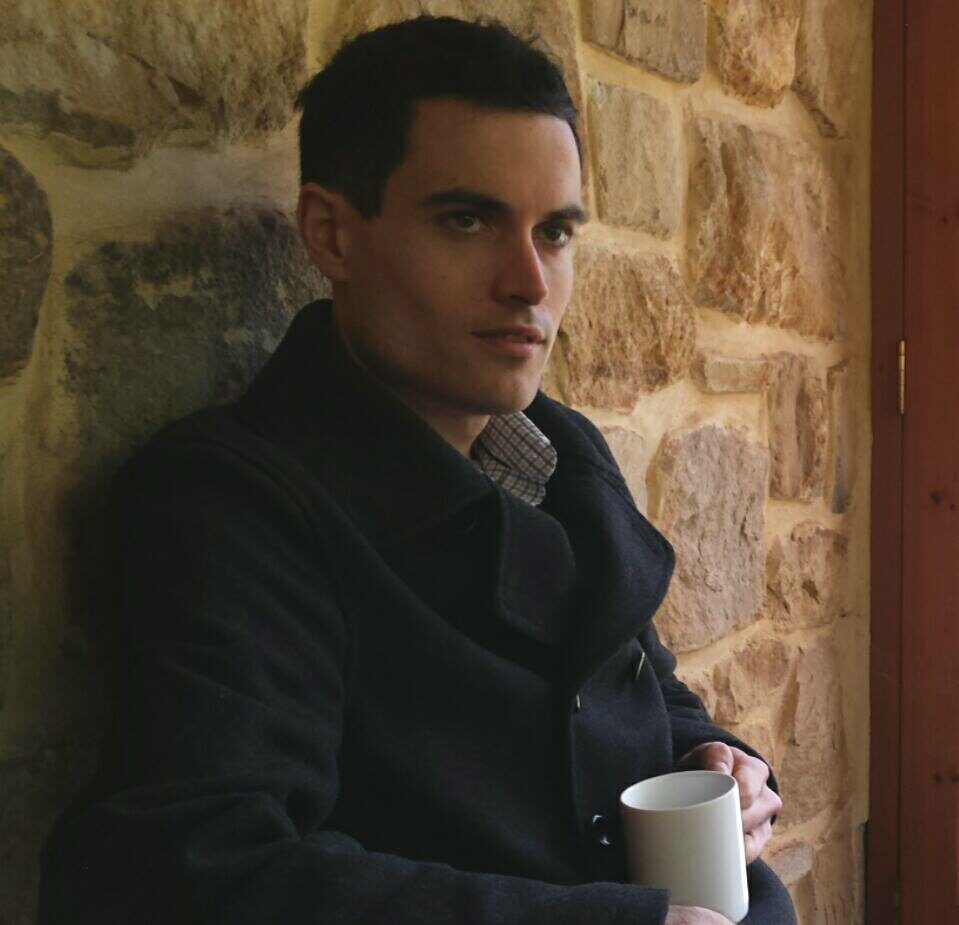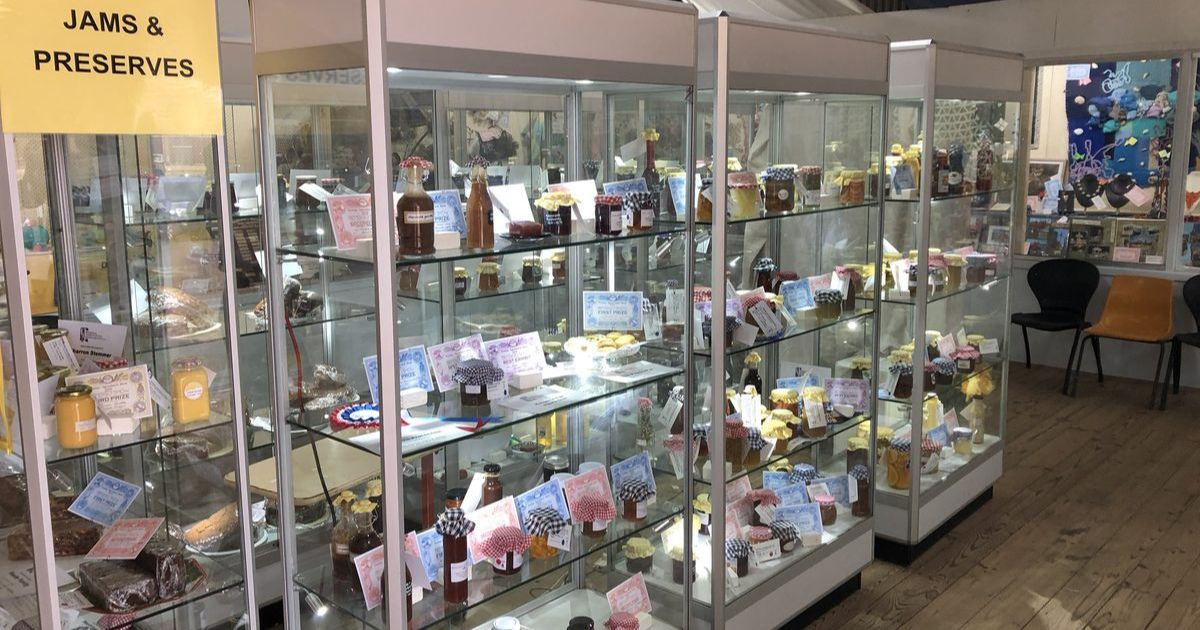Local artist profile: Dr Michael J Leach

Verse: Leach draws on elements such as real-life experiences and scientific facts to produce his work. Photo: SUPPLIED
THIS week we chat with prolific poet Dr Michael J Leach.
What initially motivated you to have a go at poetry?
After penning the occasional poem at primary school, I didn’t write poetry again till the age of 28.
The first poem I wrote in adulthood was a semicircle-shaped, rhyming poem called Longitudinal. This poem pays tribute to the long-term, or longitudinal, patient journeys undertaken by people experiencing chronic health conditions.
The content arose from quiet moments of reflection: personal reflections on family members’ experiences of ill health as well as professional reflections on working in healthcare and undertaking a PhD in pharmaco-epidemiology.
This poem’s form was inspired by the circular shapes that permeate our lives and the poetic devices used in other peoples’ poetry, predominantly rhyme schemes found in Shakespearean sonnets and song lyrics.
I felt motivated to continue learning about and writing poetry when Longitudinal was, quite unexpectedly, accepted for publication in the Medical Journal of Australia in 2015.
How would you describe your style of poetry?
Poetry is a highly flexible artform comprising many different styles. I write various types of poetry, ranging from traditional poetic forms and prose poetry to free verse and visual poetry.
Most of my poems can be described as examples of non-fiction poetry in that they’re based on real-life experiences, observations, perceptions, and scientific facts.
My poetry style has developed through immersion in other peoples’ poetry, attentiveness to the world and surrounding universe, and openness to self-reflection and experimentation.
You’re also a Senior Lecturer at Monash Health here in Bendigo. How do you go combining the two and are there any synergies involved?
In my role at Monash University, I incorporate poetry into health professions education. I include poems and songs in learning materials in order to provide contextual information and reinforce concepts.
Furthermore, my colleagues and I run online poetry writing workshops for health professions students and staff located across regional Victoria. The poetry type we use for the workshops is the haiku – a concise, evocative Japanese poetic form that can be used to capture moments in time, thereby acting as a reflective writing tool and mindfulness technique.
As our workshops aim to improve empathy, uncertainty tolerance, and mental wellbeing among participants, they form part of the growing interdisciplinary field of health humanities. My Monash colleagues and I promote the health humanities by leading a special interest group within the Australian & New Zealand Association for Health Professional Educators.
Which other poets inspire you and why?
I am inspired by contemporary Australian poets who write about health, science, or nature. These poets include Alicia Sometimes, Amanda Anastasi, Andy Jackson, Anne Elvey, Benjamin Dodds, Brenda Saunders, Carol Jenkins, David Munro, Heather Taylor Johnson, Ian Gibbins, Leah Kaminsky, Melinda Kallasmae, Paul Kelly, Phillip Hall, Rachael Mead, Rachel Rayner, Ronald Arana Atilano, Stuart Barnes, Tim Metcalf, and Tricia Dearborn.
I am also inspired by Canberra-based poet and teacher Owen Bullock, whose books and essays have taught me so much about the haiku form.
What are some highlights or fond memories you have from your poetry exploits so far?
I’m grateful to many people for the following poetry career highlights: winning the UniSA Mental Health and Wellbeing Poetry Competition (2015), exhibiting a penguin-shaped poem on Ross Island, Antarctica as part of the inaugural Antarctic Poetry Exhibition (2019), publishing the poetry chapbook Chronicity through Melbourne Poets Union (2020), receiving a commendation in the Hippocrates Prize for Poetry and Medicine (2021), performing musically backed poetry to several hundred people during the Stereo Stories concert at the Bendigo Writers Festival (2021), displaying a koala-shaped poem in a shopfront window as part of Emporium Creative Hub’s Featured Artist of the Month initiative (2022), interviewing one of my favourite poets – Andy Jackson – at the Bendigo Writers Festival (2022), and publishing a full-length poetry collection called Natural Philosophies through Recent Work Press (November 2022).
How has your practice been affected by COVID? Has there been little change or has it had a substantial effect?
COVID has had a substantial positive effect on my poetry practice.
During lockdowns, I found more time than usual for self-reflection and poetry writing. I am grateful to Creative Communities, City of Greater Bendigo for running the What I Did Last Week: Online Exhibition throughout 2020 and into 2021.
This exhibition encouraged me to routinely write poetry, predominantly visual poems. My records show I published or exhibited 170 poems over 2020-2021 compared with 51 poems in 2018-2019, suggesting I’ve been more than three times as productive during the pandemic.
Poetry writing has helped me to stay philosophical throughout the pandemic and to cope with the unexpected loss of my beloved mother in June 2020.
How can people check out your work?
People can view examples of my poetry in my chapbook Chronicity (Melbourne Poets Union, 2020), on my Instagram page @m_jleach, in journals such as Cordite Poetry Review and Plumwood Mountain, amidst online galleries such as Emporium Creative Hub’s Featured Artist of the Month gallery and the City of Greater Bendigo’s What I Did Last Week: Online Exhibition, and in print anthologies such as Lockdown Poetry: The Covid Long Haul (edited by Rose Lucas, Liquid Amber Press, 2021) and Poetry for the Planet: An Anthology of Imaged Futures (edited by Julia Kaylock and Denise O’Hagan, Litoria Press, 2021).
People can also listen to my poetry readings online by tuning in to Compulsive Reader Talks, The AntipodeanSF Radio Show, La Mama Poetica: September, or YouTube.
Previously, I’ve performed my poetry at various events in Bendigo, Heathcote, Melbourne, Perth, Sydney, and Canberra.
My first full-length poetry collection, Natural Philosophies, will be released by Recent Work Press in November 2022 and can now be pre-ordered online. Following the release of Natural Philosophies, I’ll be reading some poems from the book at launch events in Bendigo and Canberra.
What would you say to young regional aspiring poets who are thinking of making a go of it?
Go for it! There are so many opportunities for young aspiring regional poets to learn about poetry and share their work with the world, thanks largely to the Internet.
I learned a great deal about poetry by ordering textbooks online and completing the Open Yale Course Modern Poetry, taught by Professor Langdon Hammer.
I then went on to enrol in one of Writing NSW’s Online Feedback: Poetry courses, which are fairly inexpensive and offered throughout the year. I highly recommend these courses.
If you’re ever unsure what to write about in your poetry, then you can always step outside and observe the natural beauty all around you. This is consistent with the idea of a ginkgo or ‘haiku walk’ in Japanese culture.
Once you feel comfortable about sharing your poetry with the public, search the Internet for places to submit your work for publication or exhibition. I’m sure you’ll find plenty of opportunities!


















